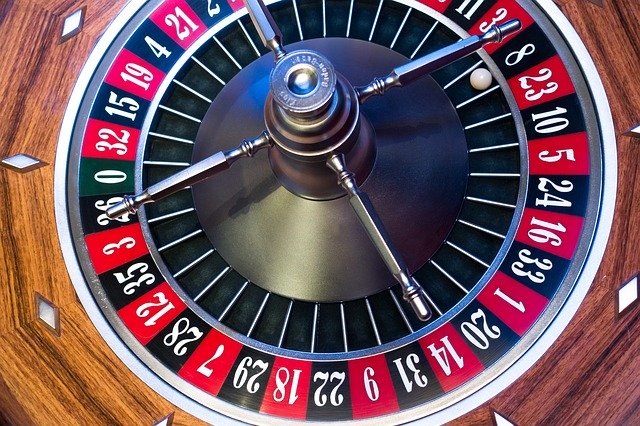The stock market is often compared to a casino. The newspapers often refer to investment banking as ‘casino banking’ which adds further weight to this idea. But are shares actually risky investments? And does the stock market deserve to be grouped with games like blackjack and roulette? Is investing gambling?

A bad reputation
The stock market has earned a bad reputation from stock market crashes such as the US bear market of 2007 – 2009, in which the major stock indices dropped 50%.
Dramatic crashes are an invitation for countless news articles to be published across the world. This reinforces a view that the stock market is a place where fortunes are lost, not made.
Equal coverage is not given to the slow and steady recovery. As CNBC reports, the US stock market rose by an average of 17% each year for the decade thereafter. This meant that even investors fully invested before the crash, saw an excellent return on their investments over the long term.
The bad reputation of the stock market is not deserved, as buying shares in a stocks and shares ISA still remains one of the most sensible choices when building an investment portfolio.
Why do people feel shares are too risky?
The stock market can make some of us feel uneasy for good reason. Once invested, stock market returns could have a huge impact on the quality of our lives, but they’re uncertain and knowable.
To be doubtful over something so significant can be uncomfortable. Our house contracts are water-tight, our liabilities are insured, and our marriages are sealed with vows. We love certainty and security. Unfortunately, investments in shares don’t conform to our desires.

The uncertainty is made worse by the daily volatility of share prices. Each morning, our shares could have risen or fallen. As a new investor, it can be difficult to resist the urge to log in to an investment account on a regular basis to review the latest result. You may find yourself being kept up at night by questions such as “which is the best company to invest in?”
For people with a cautious risk appetite, shares will present an intolerable amount of risk. For this group of individuals, shares are simply the wrong answer.
Discover your tolerance with our investing risk appetite questionnaire.
How can we change the way we view the riskiness of shares?
On any given day, shares have a roughly 50:50 chance of rising or falling. Sometimes those movements can exceed 10% for an individual company.
Because of these odds, it’s easy to concede that someone who invests in a single company for a single day is gambling. They’re effectively putting their money on red and taking a spin of the roulette wheel.
But this is where the parallel with casinos ends. Things change dramatically when you crank up the number of spins of the roulette wheel.
In a casino, the house has a small edge on each bet. There are 37 or 38 spaces on the wheel, but rather than rewarding you with 37x or 38x, they only pay out 36x of your stake if you win.
This is a tiny edge for a single spin, but over many spins, this edge accumulates and will ensure the defeat of all but the luckiest player.
In the stock market, the exact opposite is true.
The chance of a rise is ever-so-slightly higher than the chance of a fall. On an individual day in the markets, this is virtually unnoticeable. It still feels like a gamble. But after ten years (or 2,610 market days) this favourable edge accumulates into a win that is highly likely, based on historic evidence.
Have a read of stocks & shares books or look at the data to see for yourself.
Shares reward patience
Take a look at this summary data, measured by the Chartered Insurance Institute which shows the chance that shares will outperform savings over different periods of time:
| Period of time (years) | Probability of shares outperforming |
|---|---|
| 2 | 66% |
| 3 | 69% |
| 4 | 73% |
| 5 | 75% |
| 10 | 91% |
| 18 | 99% |
This table shows that there have only been a couple of 18 periods in history where a savings account would have beaten a diversified stock market investment.
The limitation of this analysis is that it is based on historical evidence. While historical returns are all we have to go on, it doesn’t guarantee that future returns will follow this pattern in the future.
The largest reason for behaviour to change in the future is if the markets experience an extreme disaster on a scale never before witnessed. But let’s get real – if an end-of-days scenario occurs – is it really likely that you would be able to access your online bank account?

Hypothetical doomsday situations tend to harm all investments except precious metals, so only those who invest in commodities would stand a chance. However, during stable times, precious metals perform poorly, so they are certainly no golden bullet!
Busting the myth
In this article, I hope I have busted the myth that ‘investing in shares is a very risky business in all circumstances.
Are shares risky? If you’re investing for a single day, they certainly are. You might as well spend your time spread betting on horse racing!
But if your investing time horizon is 5 years or more – long enough to access the high probabilities in the table above – investing becomes a very different proposition.
If I were placing a bet which won 99 out of 100 times in the past – I wouldn’t call that a gamble. Would you?